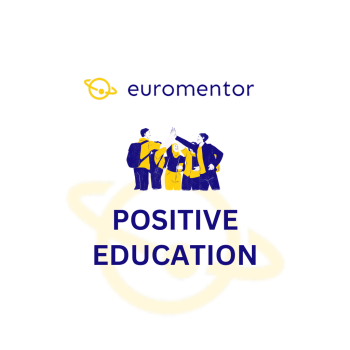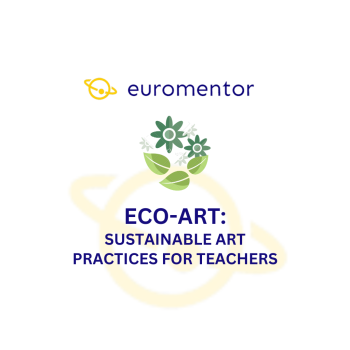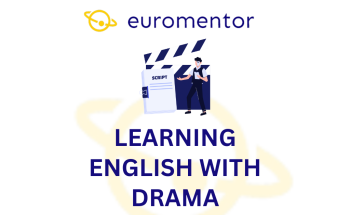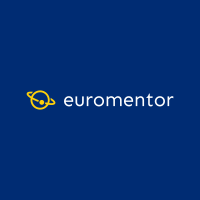
Intercultural Classroom Management and Communication (Barcelona, Spain)
Throughout this Erasmus+ course, you will explore a range of strategies and practices aimed at fostering effective communication and harmonious interactions in culturally diverse classrooms.
Description
- Throughout this Erasmus+ course, you will explore a range of strategies and practices aimed at fostering effective communication and harmonious interactions in culturally diverse classrooms. Strategies include active listening, which involves attentively hearing and understanding perspectives from diverse cultural backgrounds, and empathy-building exercises that encourage students to step into each other's shoes, fostering empathy and respect.
- Additionally, you will explore the significance of non-verbal communication and how gestures, body language, and facial expressions can convey different meanings across cultures.
- Furthermore, this course will equip educators with intercultural classroom management strategies to navigate diverse learning environments successfully. Techniques such as creating inclusive classroom norms collaboratively with students, promoting cross-cultural collaboration through group activities, and implementing conflict resolution methods.
Learning objectives
- Cultural Competence: Participants will develop a deeper understanding of cultural competence in education and its significance in fostering inclusive learning environments.
- Intercultural Communication Skills: Participants will enhance their ability to communicate effectively across diverse cultural backgrounds, including active listening, empathy-building, and awareness of non-verbal communication cues.
- Conflict Resolution: Participants will acquire strategies for managing intercultural conflicts in the classroom, promoting peaceful resolutions while respecting cultural differences.
- Inclusive Classroom Management: Participants will learn techniques for creating inclusive classroom norms, fostering cross-cultural collaboration, and implementing culturally responsive teaching approaches.
- Promotion of Mutual Understanding: Participants will explore methods for promoting mutual understanding and respect among students from different cultural backgrounds and fostering a sense of community.
Methodology & assessment
Interactive Workshops: The course employs a hands-on approach, featuring interactive workshops, group discussions, and collaborative activities.
Peer Learning: Participants engage in peer-to-peer learning, benefiting from the diverse backgrounds and experiences of their fellow educators.
Practical Application: The training emphasises the practical application of concepts learned.
𝐀𝐬𝐬𝐞𝐬𝐬𝐦𝐞𝐧𝐭:
Formative Assessment: Continuous assessment methods are employed throughout the course, including quizzes, group presentations, and reflective journals.
Final Project: Participants are required to develop a final project that incorporates the knowledge and skills gained during the course.
Course Evaluation: At the end of the course, participants are asked to complete an evaluation form, offering insights into the effectiveness of the training program.
Materials, digital tools & other learning resources
Curriculum Frameworks: Strategies for managing diverse classrooms and fostering inclusion.
Lesson Plans: Sessions on intercultural communication, conflict resolution, and empathy.
Activity Guides: Role-plays, discussions, and scenarios for cultural awareness.
Assessment Tools: Tools to evaluate communication skills and classroom climate.
Case Studies: Examples of successful intercultural classroom practices.
Certification details
Our courses meet 𝐄𝐫𝐚𝐬𝐦𝐮𝐬+ 𝐪𝐮𝐚𝐥𝐢𝐭𝐲 𝐬𝐭𝐚𝐧𝐝𝐚𝐫𝐝𝐬 for Key Action 1 (learning mobility of individuals).
Participants must attend a minimum of 80% of sessions and actively engage in discussions and practical activities to enhance their learning experience.
Upon successful completion, participants will receive a Certificate of Attendance. Learning Agreements and Europass Mobility documents are available upon request at no additional cost.
Pricing, packages and other information
-
Price:400Euro
-
Course package content:
𝐂𝐨𝐮𝐫𝐬𝐞 𝐅𝐞𝐞 𝐈𝐧𝐜𝐥𝐮𝐝𝐞𝐬 (𝐍𝐨 𝐀𝐝𝐝𝐢𝐭𝐢𝐨𝐧𝐚𝐥 𝐨𝐫 𝐇𝐢𝐝𝐝𝐞𝐧 𝐂𝐨𝐬𝐭𝐬)
- Course Materials: Essential handouts, guides, and resources to support learning.
- Administrative Support: Assistance throughout the course for smooth registration and communication.
- Monitoring and Mentoring: Ongoing support from experienced professionals for personalized guidance.
- Coffee Breaks: Refreshments during breaks to facilitate networking and informal discussions.
-
Additional information:Description of the services and activities included in the course package (such as accommodation, meals, transport) or available at extra cost.
-
Cancellation & changes:
As an Erasmus+ course provider, we understand circumstances can change.
𝐅𝐥𝐞𝐱𝐢𝐛𝐥𝐞 𝐑𝐞𝐬𝐜𝐡𝐞𝐝𝐮𝐥𝐢𝐧𝐠:Participants may reschedule or transfer their registration depending on availability.
𝐑𝐞𝐟𝐮𝐧𝐝 𝐏𝐨𝐥𝐢𝐜𝐲:For details regarding the refund policy, please contact us at info@euromentor.es.
𝐎𝐫𝐠𝐚𝐧𝐢𝐬𝐚𝐭𝐢𝐨𝐧𝐚𝐥 𝐑𝐢𝐠𝐡𝐭𝐬:We may transfer participants to an alternative course for organisational reasons.
𝐅𝐨𝐫𝐜𝐞 𝐌𝐚𝐣𝐞𝐮𝐫𝐞:Options available in unforeseen circumstances
-
Additional information:The options and conditions for change and cancellation, and the policy in case of unforeseen circumstances (force majeure).
Additional information
-
Language:English
-
Target audience ISCED:Primary education (ISCED 1)Lower secondary education (ISCED 2)Upper secondary education (ISCED 3)
-
Target audience type:TeacherHead Teacher / PrincipalTeacher Educator
-
Learning time:25 hours or more
Upcoming sessions
Past sessions
More courses by this organiser

Positive Education: Happy Schools with Positive Communication and Social-Emotional Learning (Barcelona, Spain)

Eco-Art: Sustainable Art Practices for Teachers (Barcelona, Spain)



